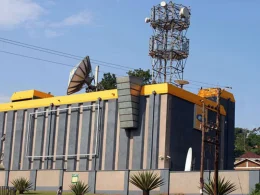By Mark Kawalya
Jumia Technologies, the pan-African e-commerce group, announced its decision to close its unprofitable food delivery arm, redirecting its focus towards the delivery of physical goods and the company’s digital wallet services. The strategic move comes as a response to the company’s evaluation, concluding that Jumia Food is not suited for the prevailing operational landscape and macroeconomic conditions across its markets. The closure will be implemented in all seven countries where Jumia Food currently operates.
Jumia Food, which was started in 2013, has consistently operated at a loss, as disclosed in a filing with the US Securities and Exchange Commission. In the nine months leading to September, it contributed merely 11 percent to the group’s gross merchandise value, representing the total order value before expenses for both products and services.
“The more we focus on our physical goods business, the more we realise that there is huge potential for Jumia to grow, with a path to profitability,” Francis Dufay, chief executive, said in the statement. “In the current context, it means leaving a business line, which we believe does not offer the same upside potential — food delivery.”
The Jumia Food has been running in seven out of the eleven countries where the group operates: Uganda, Kenya, Nigeria, Côte d’Ivoire, Algeria, Tunisia, and Morocco. The company plans to redeploy some of the staff dedicated to this unit to reinforce the physical goods business.
Beyond the seven countries hosting its food delivery operations, Jumia also has a footprint in South Africa, Ghana, Senegal, and Egypt. Listed on the New York Stock Exchange and headquartered in Berlin, Germany, the company, established in 2012 by two French ex-McKinsey consultants along with Nigerian and Ghanaian entrepreneurs, has not reported a profitable quarter since its April 2019 listing.
The company’s initial public offering in 2019 positioned it as “Africa’s Amazon,” reaching a valuation of $1.1 billion on the first trading day. The share price peaked at $49.8 in May, valuing the company at around $4 billion. Jumia’s status as the first African tech company to list in New York fueled investor enthusiasm, positioning it as a promising player in the untapped African e-commerce market.
Despite the initial optimism, the company’s performance faced scrutiny post-IPO, with an activist short seller accusing Jumia of misleading information in its prospectus. The matter resulted in a $5 million settlement, shedding light on the complexities beyond the initial appearances and market exuberance.








